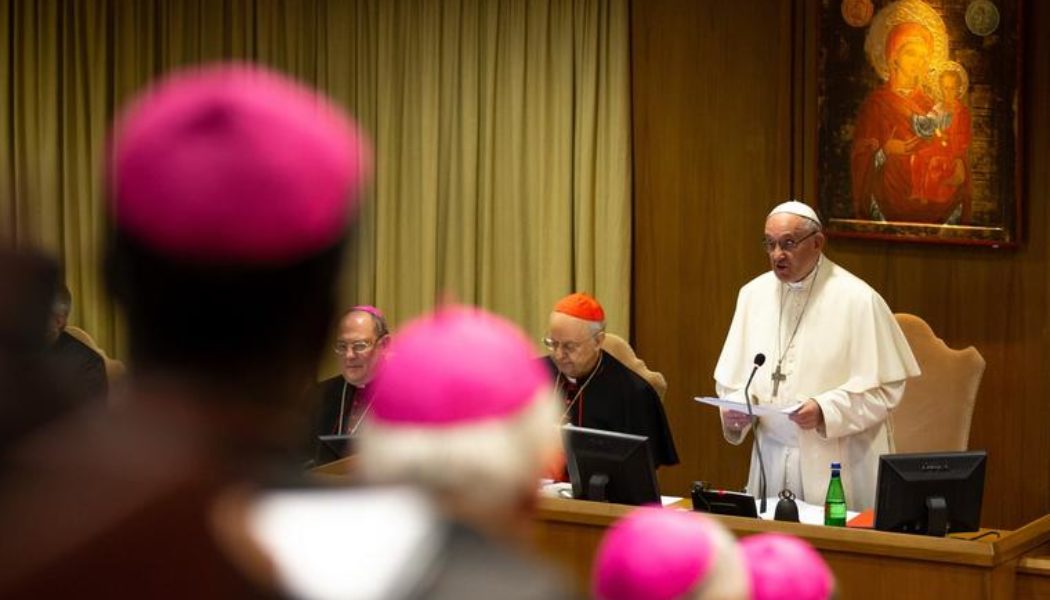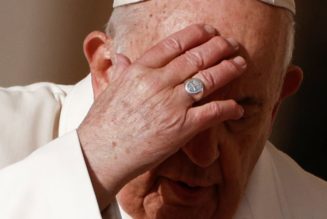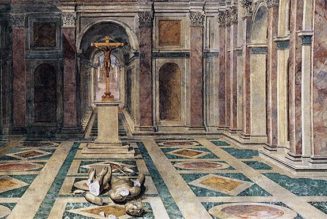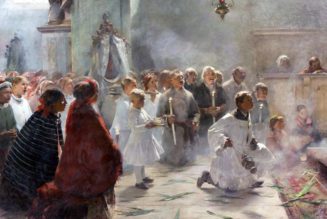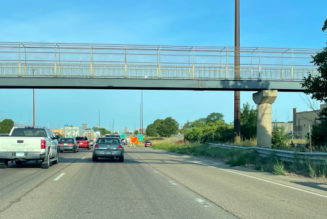
Although the instrumentum laboris, or “working document,” for October’s Synod of Bishops makes clear that it “is not a document of the Church’s Magisterium,” the 50-page document undoubtedly does have something to say, propose, and arguably teach about the kind of synodal Church that Pope Francis has made such a priority of his pontificate — and perhaps about far more.
This is true not only of the document’s first half, which describes “the characteristic signs of a synodal Church” and highlights “conversation in the Spirit” as a way of enacting this synodality, but also in the IL’s second half, where it proposes questions around three priority issues (communion, participation, and mission) and gets into controversial matters, such as lay governance, women’s diaconate, and priestly celibacy.
To unpack the content of the Synod document, and to place its often implicit propositions in the broader context of the Church’s teaching, the Register pitched some open-ended questions to three lay leaders who have been following the Synod on Synodality.
Sister Sara Butler, a Missionary Servant of the Most Blessed Trinity, is professor emerita of dogmatic theology at the University of St. Mary of the Lake Mundelein, Illinois. She also served two terms on the International Theological Commission and is a past president of the Academy of Catholic Theology. She currently develops retreats and faith formation programs to help equip Catholics for their role as missionary disciples.
Terence Sweeney is a theologian-in-residence at the Collegium Institute at the University of Pennsylvania, and is the editor-at-large of the Genealogies of Modernity Project.
Stephen White is the founder and executive director of the Catholic Project at the Catholic University of America. He is also a fellow in Catholic Studies at the Ethics and Public Policy Center.
What most surprised you about the text?
SISTER SARA: I was surprised to learn that the Synod would employ the method of a “conversation in the Spirit.” The instrumentum laboris describes this as “a way forward” and a “Pentecostal moment.” I see now that the parish meeting I attended used this method, but it wasn’t given a name, I don’t recall invoking the Holy Spirit, and we did not follow directions very well!
When I saw “conversation in the Spirit” spelled out, I recognized it as a method of ecclesial discernment that offered everyone at the table an opportunity to speak, without rebuttal or debate, and gave the rest an experience of listening. This method resembles the practice of “taking counsel” that members of my religious family follow when we meet to share responsibility for important decisions affecting community life and mission. After personal prayer and communal invocation of the Holy Spirit, each Sister gives out in simplicity and humility what the Holy Spirit gives her, and the others listen. This sharing leads to a communal discernment of God’s will.
SWEENEY: To be honest, I was surprised at the claims that synodality is central to Catholic ecclesiology. I managed to make it almost my entire life in Catholic education and never came across the term and yet “our identity and vocation is to become an increasingly synodal Church.”
I think this is part of what alienates the 90% of Catholics who have not participated. It is strange to wake up one day a Catholic and find that “Formation for a more genuinely synodal spirituality is at the heart of the renewal of the Church.” But is that what is most needed today? Are those most keen on reading the signs of the times actually doing so?
WHITE: The text contains no real surprises; it is about what was to be expected, if not quite what was to be hoped for. The IL is a functional document, a “working tool” as it calls itself, so it doesn’t pretend to be great literature or profound theology. It’s not a teaching document. But it reads like a document drafted by committee in summation of other documents drafted by committees.
The whole thing is (unfortunately but, again, unsurprisingly) a bit of a word salad, riddled with jargon and buzzwords. Some of this is no doubt due to language and translation issues. The inclusion of “worksheets” is a novelty, but that is mostly a matter of formatting. I’m not sure anyone reading it would come away with a clearer sense of what synodality is, or why it is essential to the mission and life of the Church, though I suppose that’s what the Synod itself is for.
What gives you hope in the document?
SISTER SARA: The first session of the Synod on Synodality aims at getting past fragmentation and polarization in the Church (#28). It will not start from scratch, but will take up questions the synodal consultation has brought to light. The process aims to make everyone feel welcome (#26), but it is also “a privileged path of conversion” (#28). According to the working paper, the Synod “begins with the invocation of the Holy Spirit, continues with the profession of faith, and arrives at shared determinations to ensure or re-establish ecclesial communion” (#48).
I was encouraged by the comparison of a Synod to a liturgical assembly rather than a parliament, and that by affirmation that our unity is grounded in “union with God in the confession of the same faith” (#49). The need to strengthen bonds and to overcome “unproductive” divisions is acknowledged. hope that certain divisive questions can be addressed peacefully and obstacles to “reception” of the Church’s teaching removed in light of “the Deposit of Faith and the living Tradition.”
SWEENEY: What gives me hope about the document is the three pillars that it envisions—communion, mission, and participation. They are keys to the Church living out the fullness of its witness. The Church as the totus Christi, the whole Christ, is the communion that has the mission of drawing all people into participation in God. The brilliance of Vatican II was giving guidance in how to live this out such that all Catholics are meant to live the faith with full, active, and conscious participation.
If the synod is about that, it can help dynamize the Church. Synodality is and can be essential to Church life if we mean living the universal call to holiness and the universal living out of service, worship, and witness. If it is about more committees, meetings, and gatherings of Boomers talking about “being church” then I think it will fail.
WHITE: I think synodality is actually important and I very much want the Synod to succeed. I want every baptized person to rediscover his responsibility for the mission of the Church. I want the Church to be more attentive to the voice of God speaking to us in the poor. I want communion strengthened and division to cease. I’m also very wary of a creeping sort of lowest-common-denominator understanding of the Church and her mission.
My hope is that the Synod helps the Church become more who she already is — a sign and instrument of salvation–rather than leading her down a path of trying to be what the world expects of her.
What, if anything, causes consternation?
SISTER SARA: The method of discernment explains how participants will be invited to share their experience, but not how it will be submitted to the “Word of God.” By “Word of God” we sometimes refer to Sacred Scripture, and sometimes (as in Dei Verbum 9-10) to Scripture and Tradition as read in the Church. The Worksheets do not identify which is meant and do not suggest “texts” that will frame the questions. Has this been worked out?
Clearly, appeal to the scriptural “Word of God” has not prevented Christians in other ecclesial communities from suffering serious divisions in their synodal assemblies. We in the U.S. have seen how their meetings have led to multiple concrete divisions, e.g., on the question of admitting women into the ordained ministry and blessing same-sex “marriages,” despite their repeated commitments to “walk together.” As Catholics, we rely on the Magisterium to interpret the Apostolic faith, and this involves its authoritative judgment on such questions. Will “conversation in the Spirit” respect this gift?
SWEENEY: To be honest, I am most concerned about conversations in the Spirit. We need this if it looks like what I have seen enacted by FOCUS Missionaries at UPenn who help students through conversation so that they can either be introduced to Christ and conformed to Christ through the Spirit of Christ. So hooray for that!
But I worry about how the Holy Spirit is being deployed at times to indicate not conversion to Christ in total fidelity to the deposit of faith but rather towards a new way of “being Church” or towards “further reflection on the Deposit of Faith and the living Tradition of the Church” in a way that hints at changing that deposit.
The Spirit moves where he wills but that is expressed in a creativity that is always shaped by fidelity and obedience. Think of St. Dominic, St. Ignatius or St. Catherine of Sienna. Spirit-filled saints! But not ones pushing for new teachings.
WHITE: Many little things give me pause, which might add up to nothing or everything. At times, the IL reads as if the only sure thing we know about the Church and her mission is that she is synodal, but what that means is as yet unknown. It is one thing for the Church to be more attentive and listen more carefully; it’s something else entirely to pretend that she does not know what she knows.
For example, the IL speaks of, “our awareness that our identity and vocation is to become an increasingly synodal Church.” But is that, in fact, the identity and vocation of the Church? What does that add to, subtract from, clarify or modify in the Nicene formulation that the Church is “one, holy, catholic, and apostolic?” Such questions are not answered; they don’t seem to have even been considered.
The document gives no sense of the drama of sin and redemption nor of the stakes involved in the Christian life. The word ‘sin’ is never mentioned. It’s as if all the problems in the Church and in the world are all a big misunderstanding rather than the fruit of our sin, from which Christ came to save us and for which he instituted the Church.
As a lay person, are you excited about the possibility of governance being broadened in the Church?
SISTER SARA: I would prefer to see the organic development of the existing processes for consultation. Evidently these processes are neglected or not used well in some countries and cultures. On the other hand, our Sisters report that the experience of working together with bishops in pastoral planning in Mexico has been very successful and satisfying—more so than in the U.S.
The relation of governance to the teaching and sanctifying munera is very delicate, but it keeps responsibility sacramentally grounded in a way that seems important to me. For example, it seems important to respect the preference given to permanent deacons as leaders of communities without a resident pastor. The hierarchical and charismatic gifts and services sometime overlap, of course, but there is a logic to holding the teaching, sanctifying, and governing tasks in one person that serves the unity of the Church. There are ways to share participation in these tasks.
SWEENEY: No. I don’t really want governance in the Church and certainly don’t want delegated governance. Christ selected the 12 and gave them the keys, keys handed onto the bishops. I don’t want governance in the Church, I want to help transform the world. That is the role of the laity and of consecrated religious. Spending my time on a diocesan committee isn’t going to do that. Don’t clericalize the laity.
WHITE: No. I’m all for better governance (who isn’t?) and a shepherd would do well to know and listen to his sheep. But I have no reason to think that the absence of Holy Orders makes one any more capable when it comes to ecclesial governance and some very good reasons to think the opposite. The idea that the measure of Christian discipleship is the ability to hold this or that office isn’t a remedy to clericalism, it is clericalism, as Pope Francis has said.
What words leap out to you in the text?
SISTER SARA: The words that leap out to me are, first, “missionary.” Pope Francis calls all the baptized to be “missionary disciples,” and puts the focus on the responsibility that comes with Baptism and the importance of the Church’s credibility in mission. We are still trying to promote the dignity of the baptized, and this includes their obligations as well as their rights. “Every Catholic a missionary” was the goal of Fr. Thomas Augustine Judge, CM, founder of Missionary Cenacle Family, to which I belong, so I am enthusiastic about the inclusion of the laity and non-ordained religious in the consultation and in the first part of the Synod.
Another “word” is “sensus fidei.” The idea shows up chiefly in the third Worksheet, but it is presupposed in the entire process. The International Theological Commission’s work on this topic (see reference in #9), especially chapter 4, should be required reading for delegates to this Synod. It supports the Synod’s spirit and goals and offers criteria for authentic participation in the “sense of the faith.”
SWEENEY: As usual, listening and welcoming. So much, perhaps everything, depends on what we mean by these words. What do we mean by listening and welcoming? I live in the Northeastern US. I am surrounded by empty churches with “All are welcome” signs. Now they add affirming to them. But they’re empty. Full churches are communities that give you something to be welcomed into. That is to say, an actually robust life of worship, service, and witness to the Truth.
Dominic listened to the people of Southern France and heard their need. That didn’t mean he adjusted things for the Albigensian. Rather, he initiated a new form of life that would counter their errors to help free those he was listening to. Bartolome de las Casas insisted on listening to the indigenous, defending the richness of their way of life and even their preference for peanuts! But this listening, and the radical welcome he offered, was into the transformative life of faith. No longer pagan wanderers but Christian wayfarers.
I think the text witnesses to this but also hints at those who want to welcome by setting aside hard teachings on sexual ethics or the male clergy. In other words, is this the welcome of Courage International or of Outreach?
WHITE: The text makes little mention of salvation or redemption and no mention of sin at all. The document is very concerned with how people feel, are made to feel, or would like to feel. There is a great deal of talk about ‘dynamism’ and ‘discernment’ and the like — which is fine, so far as it goes — but it is one thing to assert such excellent qualities and another to demonstrate them. For all of its effort to be “practical” and “concrete” rather than “theoretical” or “abstract,” the synod still has something of a “show me, don’t tell me” problem.
